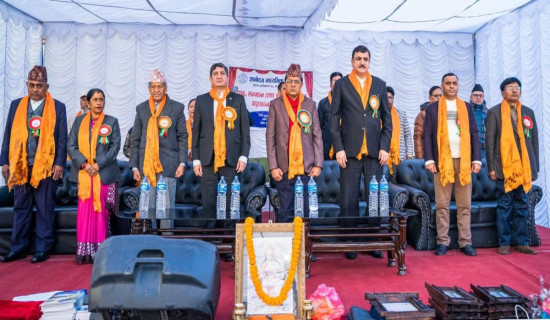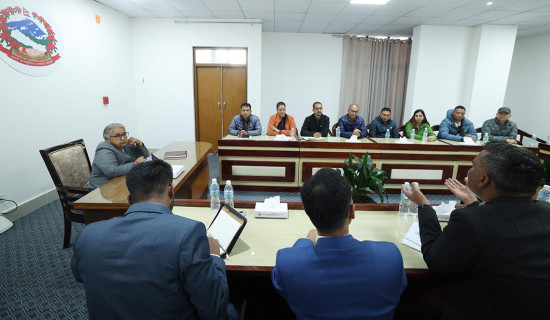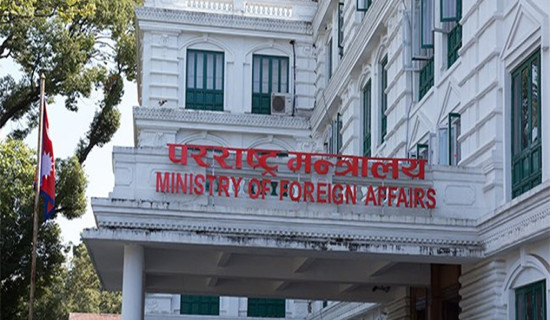- Monday, 1 December 2025
Heal Our Hospitals
Childbirth is one of the most wonderful moments in one's life. The occasion is celebrated. But for the family of 34-year-old Meena Shree Rai of Khotang, it was otherwise as she passed away while giving birth to her child. The moment of joy for her family turned into a tragedy, culminating in violence in the hospital on Monday afternoon. The unwanted incident has once again raised troubling questions about medical negligence and transparency in Nepal’s healthcare system.
According to reports, Meena Shree was admitted to KIST Hospital in Lalitpur for delivery after being under regular medical supervision there throughout her pregnancy. Her family alleges that she was repeatedly assured of a normal delivery despite signs of distress and complications. When her condition suddenly deteriorated, blood loss became uncontrollable, and the situation reportedly spiraled beyond recovery. Her family members blame the doctors for failing to act promptly. However, this is not the first incident in Nepal in which hospitals and doctors are targeted, accusing them of negligence while handling delivery and other cases. Even after achieving commendable progress in reducing maternal mortality, now and then cases like this remind us that systemic flaws continue to surface.
This kind of negligence occurs due to a lack of preparedness, weak decision-making and inadequate communication between medical staff and families, resulting in irreversible consequences. Hospitals are seen as a place where life is saved, but cases like this betray people’s hope and they often resort to violence and vandalism in rage. However, violence is not the solution to anger, especially in a sensitive place like a hospital. The physical damage caused to the hospital and the clash between the protesters and the police on the hospital premises do not send a positive message about Nepal's healthcare system. The vandalism affects not only the property but also other patients, those in critical care, children and the elderly, who have nothing to do with the incident.
But it would be wrong to dismiss the public outcry as a mere emotional outburst. The healthcare system in Nepal has had continuous problems with accountability and empathy. Many families who have lost their loved ones due to negligence on the part of medical personnel feel a lack of justice, ignored or silenced. Hospitals should be transparent and realise that it is their moral obligation to explain and offer impartiality to the victim’s family. When errors occur, acknowledging them honestly and taking corrective measures can rebuild trust far more effectively than defensive statements or silence.
The affected ones seek justice, which should be provided by the responsible authority as soon as possible. An independent, transparent medical inquiry should be conducted to establish the truth behind Meena Shree Rai’s death. If negligence on the part of the attending doctors or the institutions is proved, they should be brought to book. But beyond punishment, the larger goal must be systemic reform. Medical colleges and hospitals need mandatory ethical training for staff, and efficient patient communication systems to prevent such tragedies in the future.
The tragedy should be a message about the value we assign to human life in our healthcare system. Every human deserves dignity, a feeling of safety and compassion. Hospitals must remember that medicine is not only about business and science but also a service to humanity. Meena Shree Rai’s death should become a turning point, a reminder that lives cannot be lost to complacency, and that justice, compassion, and reform must go hand in hand if we are to restore faith in our medical institutions.



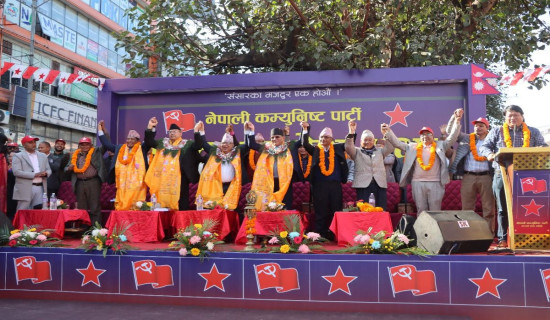

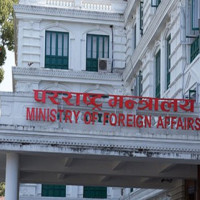


-square-thumb.jpg)


